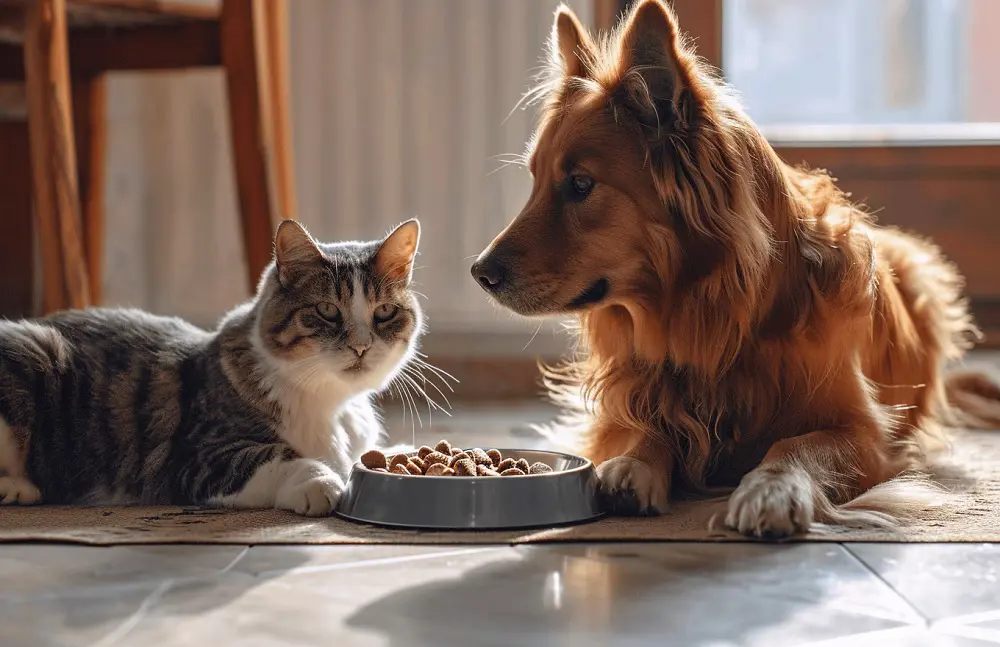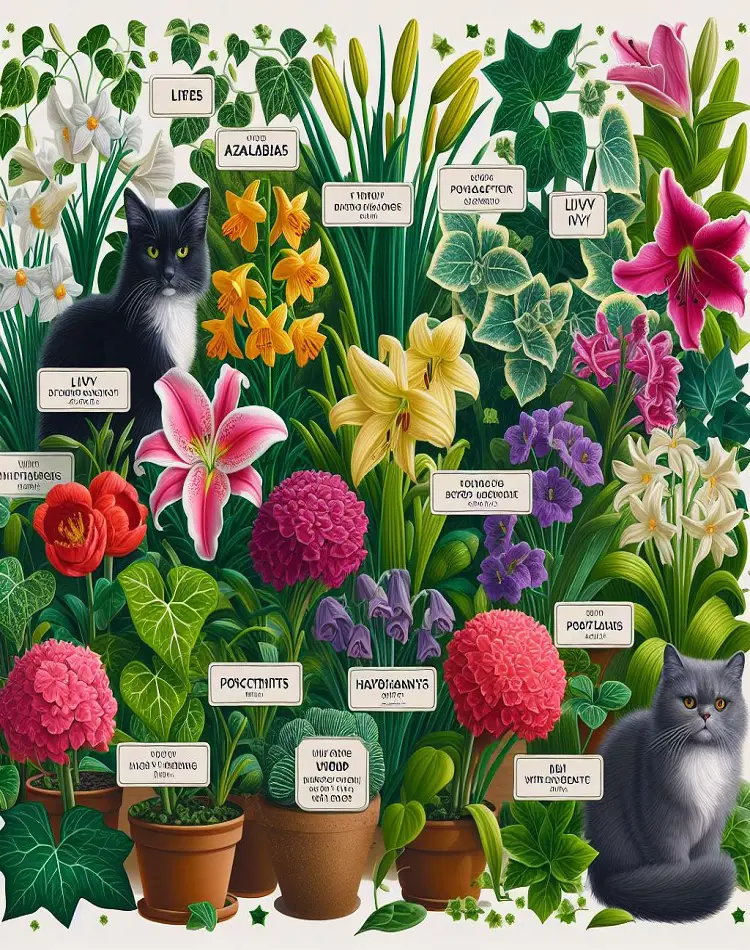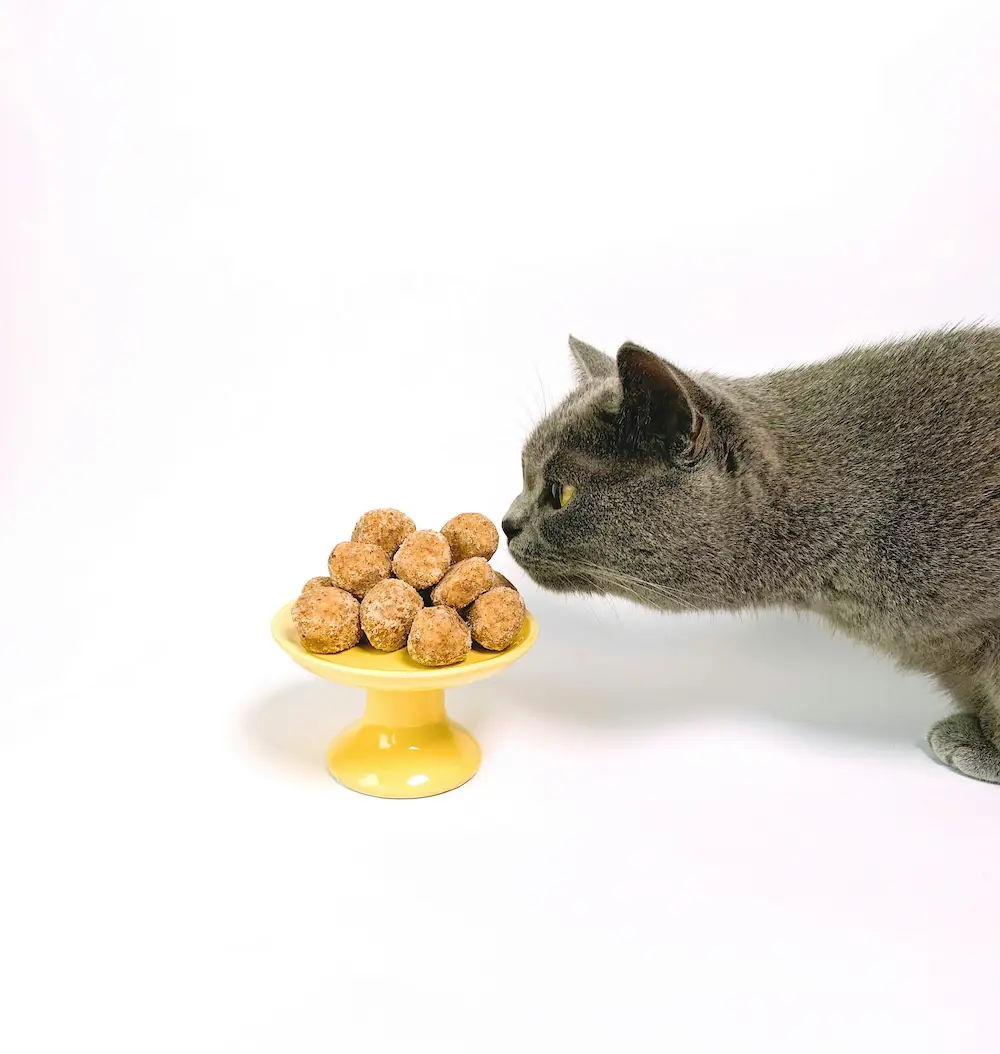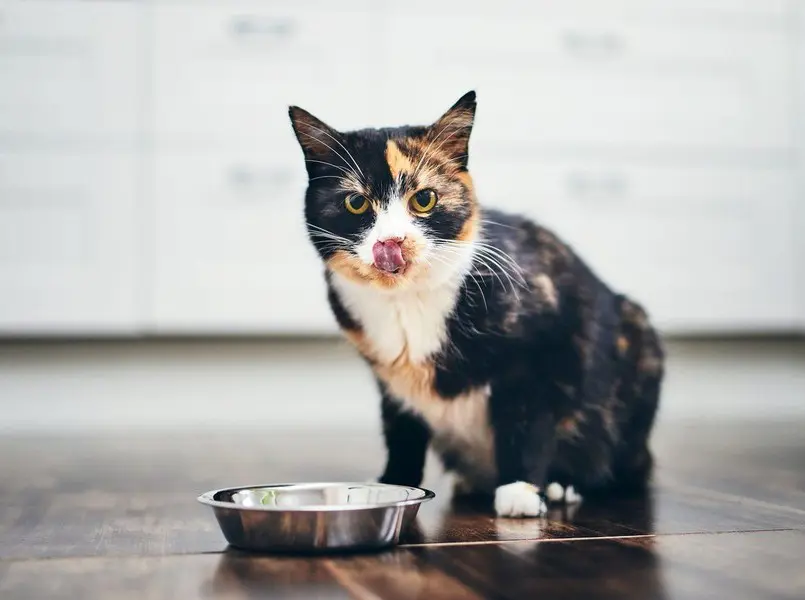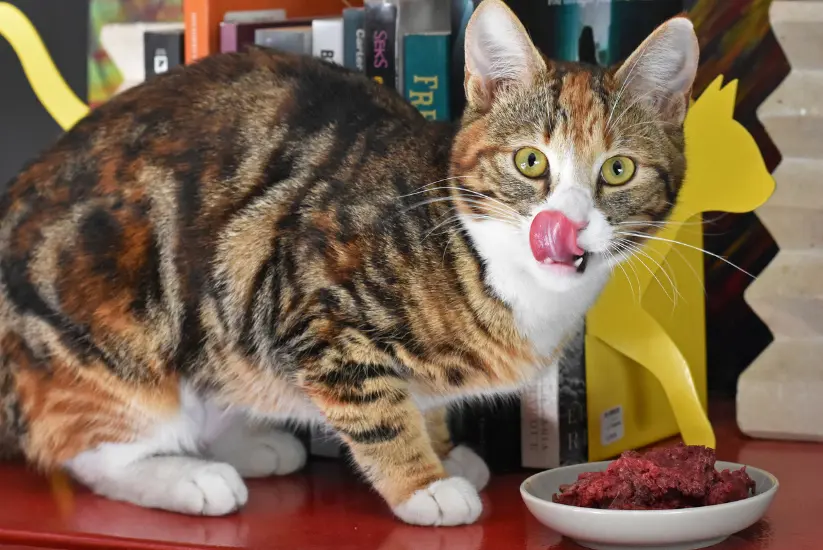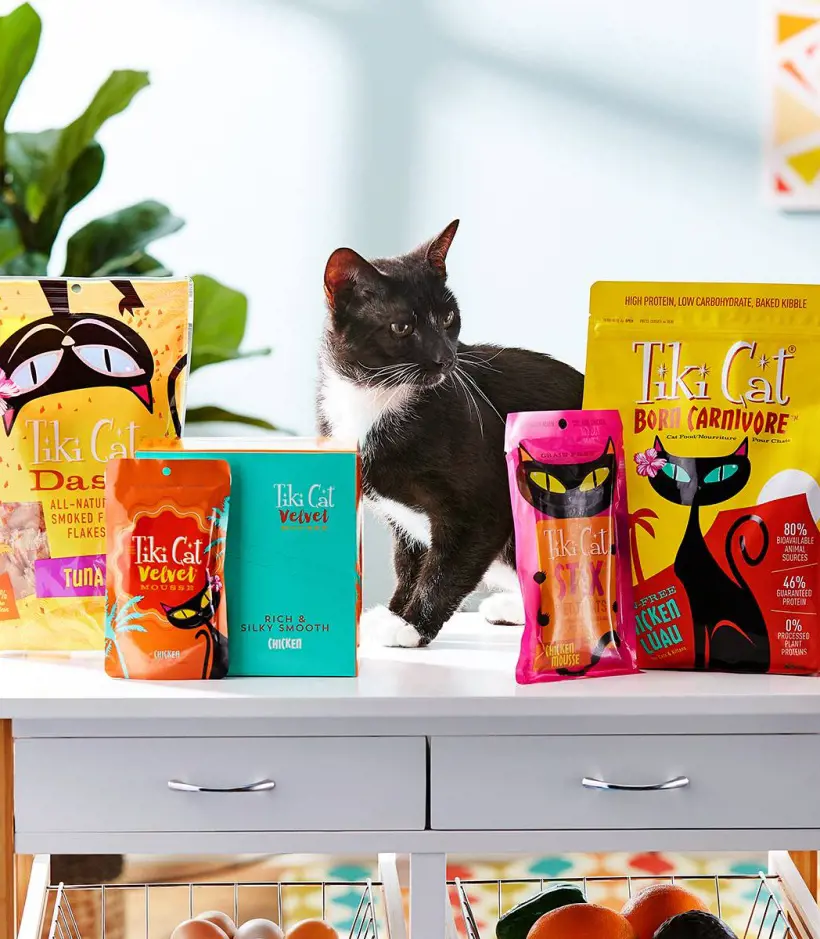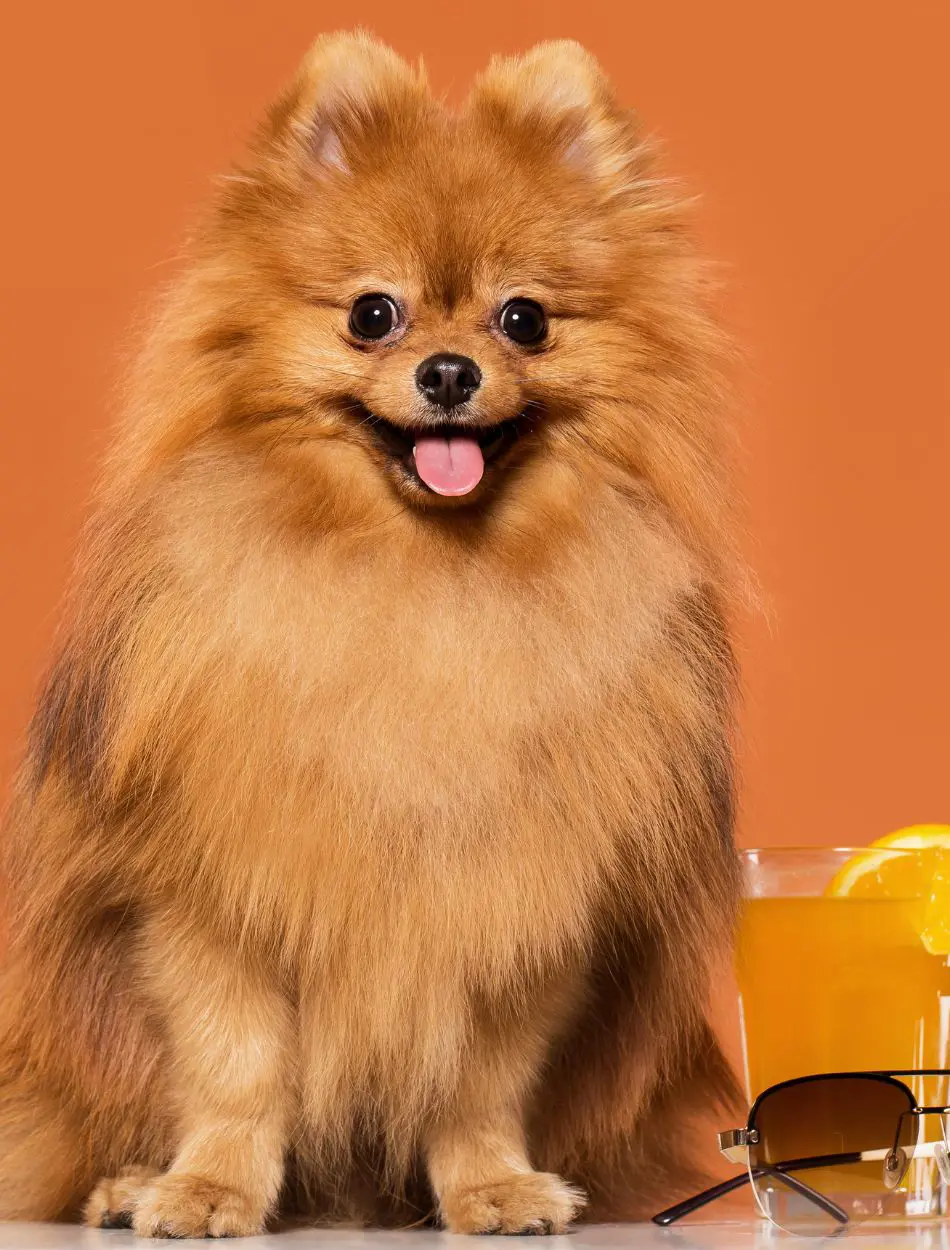20 Cat Friendly Human Foods For Occasional Treats
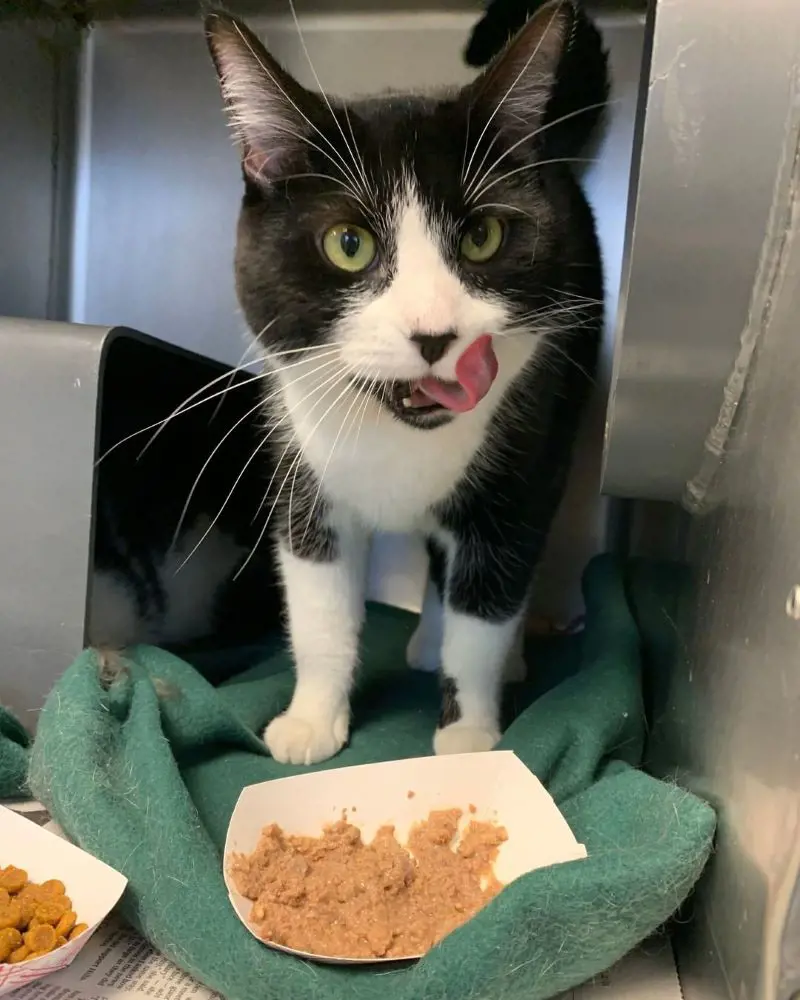
As loving pet owners, we often find ourselves wanting to spoil our feline companions with special treats. While there is a wide array of commercial cat treats available, many of us wonder if there are human foods that can be safely shared with our furry friends.
The good news is that certain human foods can indeed be served as tasty treats for cats, adding variety and excitement to their diet. Before venturing into the world of human foods for cats, it's essential to understand that their dietary needs differ from ours and that human food offered as a treat should be given in moderation.
1. Cooked Chicken
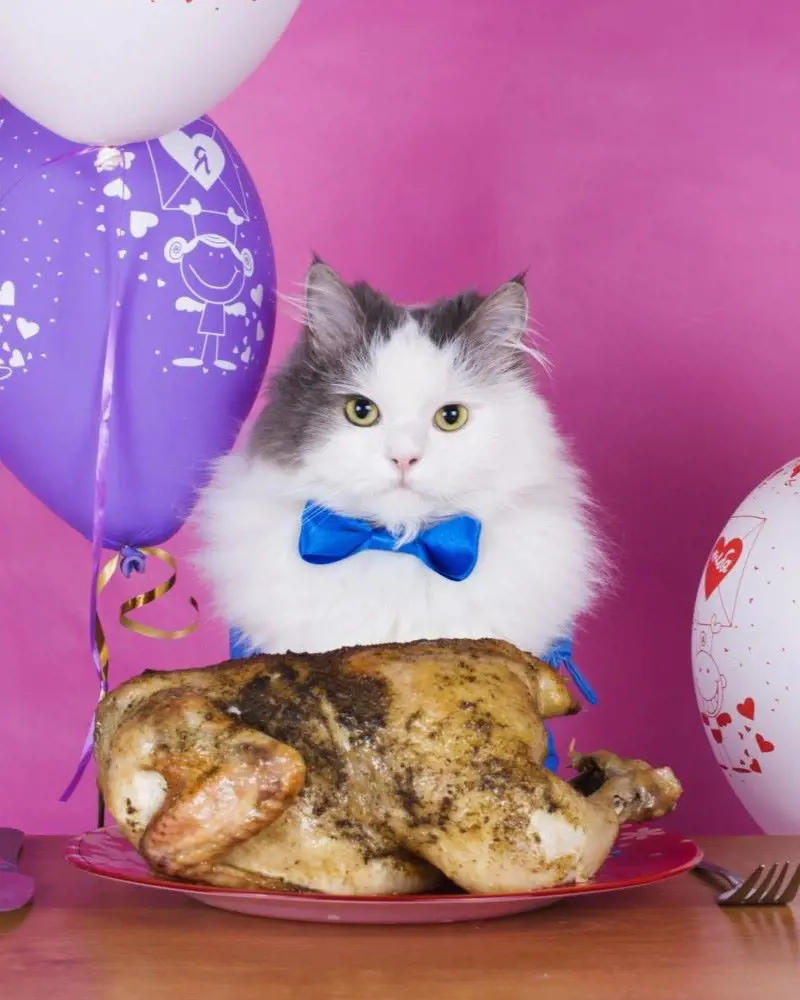
Cooked chicken can be served to cats, but it is important to note a few considerations. Firstly, the chicken should be boneless and skinless as bones can pose a choking hazard and the skin can be high in fat. Secondly, it should be thoroughly cooked to eliminate any bacteria or parasites.
Chicken is a good source of lean protein for cats and can provide essential amino acids. It is a common ingredient in many commercial cat foods as well. However, make sure that chicken is not the sole component of a cat's diet.
2. Cooked Turkey
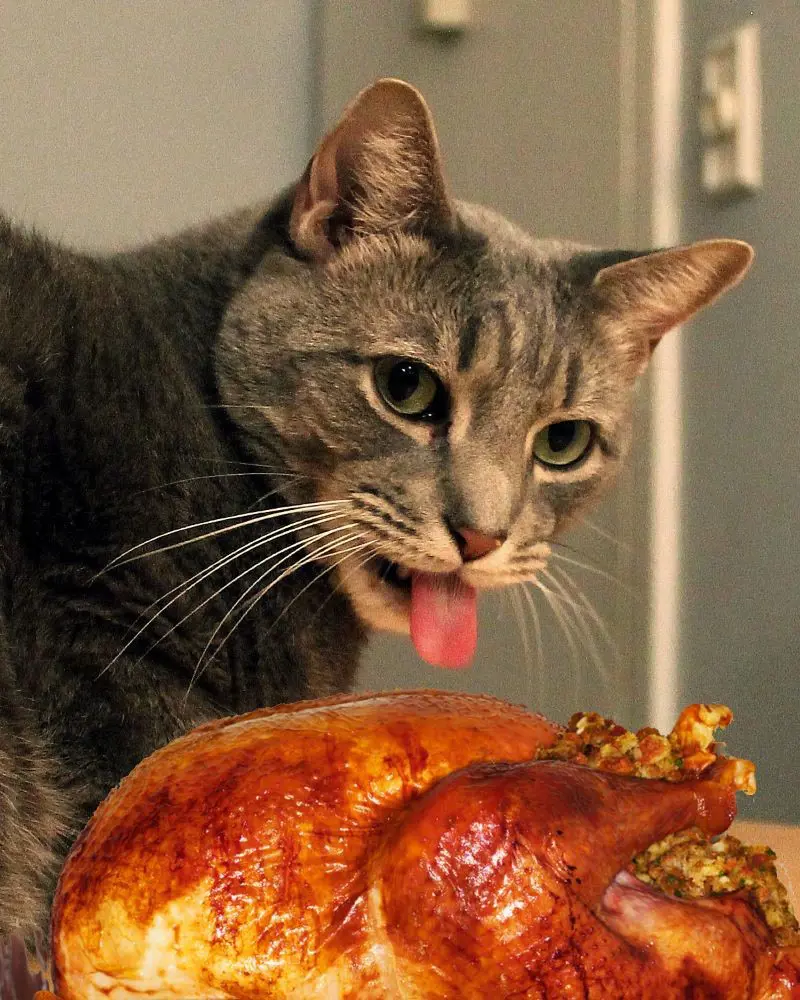
Cooked turkey can be a healthy addition to a cat's treat if given in moderation and prepared properly. Turkey is a lean source of protein, which is essential for cats to maintain strong muscles and overall health. It also contains important nutrients like vitamins B6 and B12, niacin, and selenium.
It is crucial to ensure that the turkey is fully cooked and free from any seasonings, spices, or additives deemed harmful to cats. Onions, garlic, and excessive salt are examples of ingredients that should be avoided. Please note that turkey should only be given as a treat or supplement to a balanced cat food diet.
3. Cooked Salmon
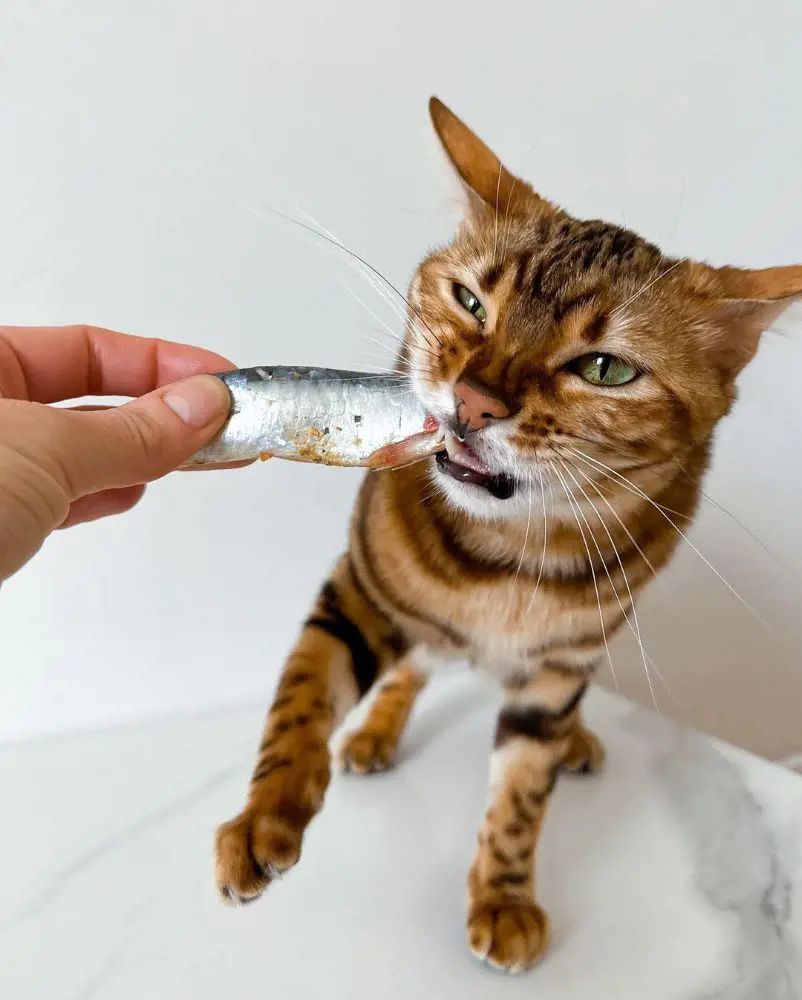
Salmon is a fish that is rich in omega-3 fatty acids, which are beneficial for a cat's overall health. These fatty acids can promote a healthy coat, reduce inflammation, and support brain function. The strong smell and taste of salmon can be very appealing to cats, making it a popular treat among feline companions.
However, some cats may have allergies or sensitivities to fish, including salmon. When feeding cats cooked salmon, moderation is key. It should be served as an occasional treat rather than a regular meal. A small portion of cooked salmon can be a great way to add variety to a cat's diet and provide them with a nutritious snack.
4. Cooked Tuna
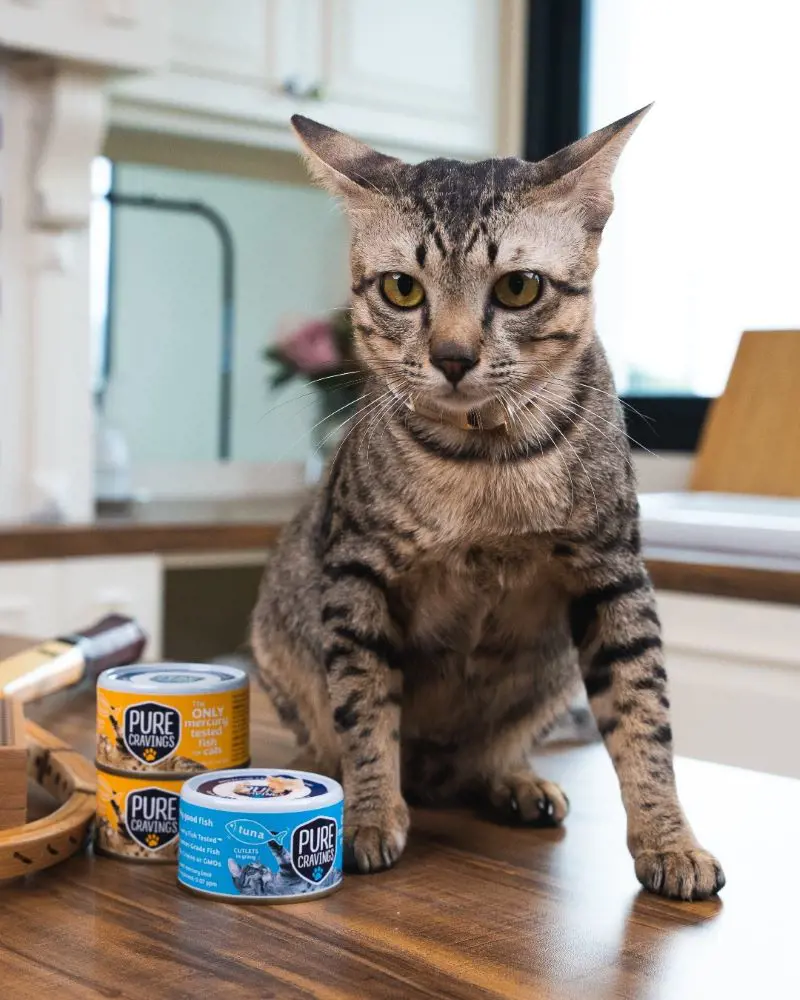
Cooked tuna can be a nutritious treat for cats if fed in moderation. Tuna is a good source of protein, omega-3 fatty acids, and other essential nutrients. However, cats require a balanced diet that includes a variety of nutrients. Feeding cats solely on tuna can lead to nutritional imbalances and deficiencies.
Additionally, cooked tuna should not be a regular part of a cat's diet due to potential health risks. Tuna may contain high levels of mercury, which can be harmful to cats if consumed in large quantities.
5. Boiled Or Baked Fish
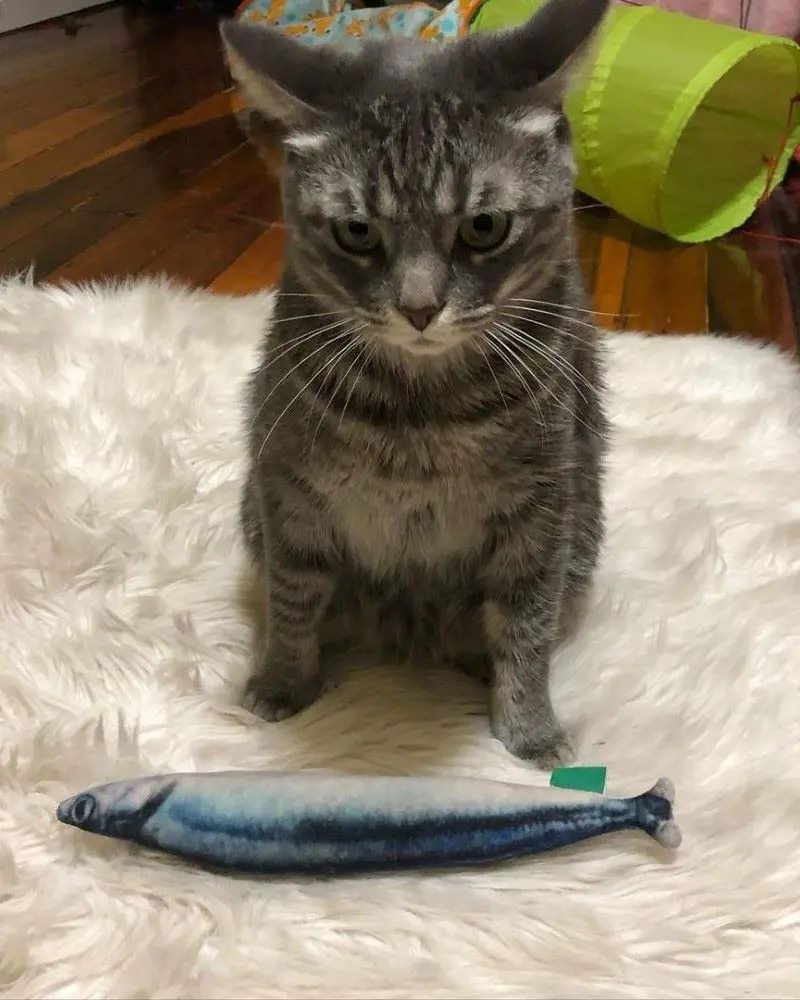
Fish should be boiled or baked appropriately before serving to a cat. Cooking helps to kill any potential bacteria or parasites that may be present, ensuring that it is safe for consumption. Raw fish can cause digestive issues or even serious health problems in cats as it contains harmful bacteria such as salmonella or listeria.
Additionally, cooking the fish also helps to break down any bones that may be present. Fish bones can pose a choking hazard or potentially damage a cat's digestive tract if swallowed whole. By cooking the fish, the bones become softer and more brittle, reducing the risk of injury.
6. Cooked Eggs
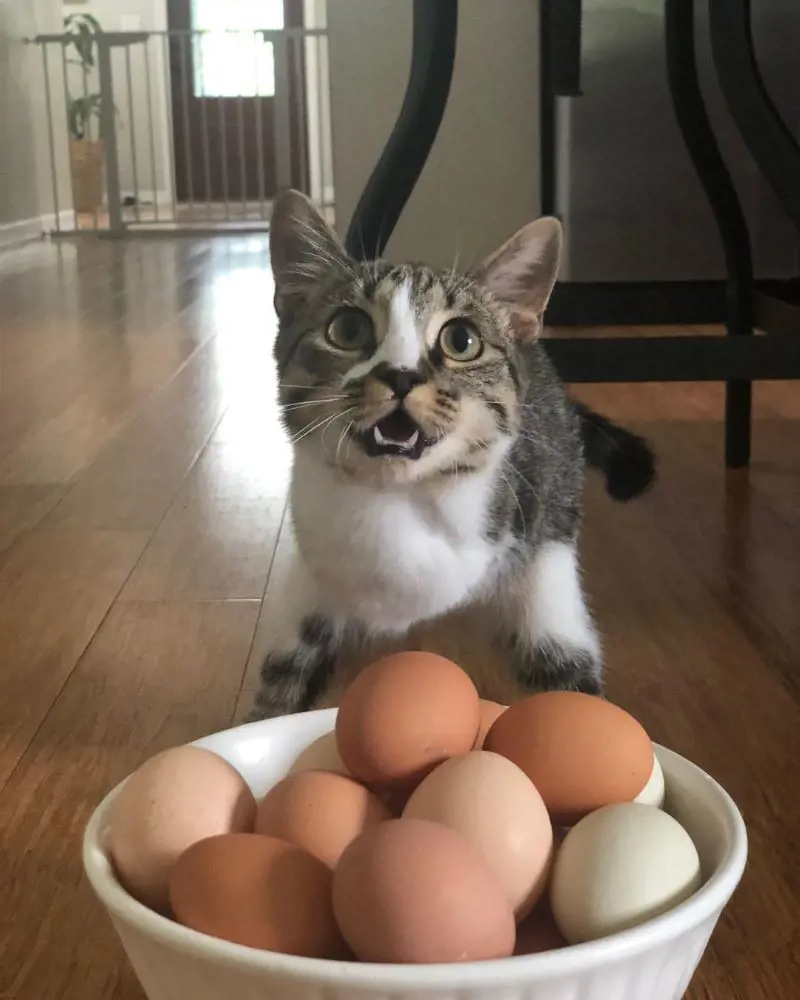
Eggs can be a healthy treat for cats if given in limited amounts. They are an excellent source of protein, vitamins, and minerals such as vitamin A, vitamin D, vitamin B12, and selenium. The protein in eggs is easily digestible and can help support muscle development and repair.
However, eggs should be cooked before feeding to cats. Raw eggs can carry the risk of salmonella or E. coli. Furthermore, eggs should be given as an occasional treat rather than a regular part of their diet. While eggs can provide nutritional benefits, they should not replace a balanced cat food diet.
7. Plain Yoghurt
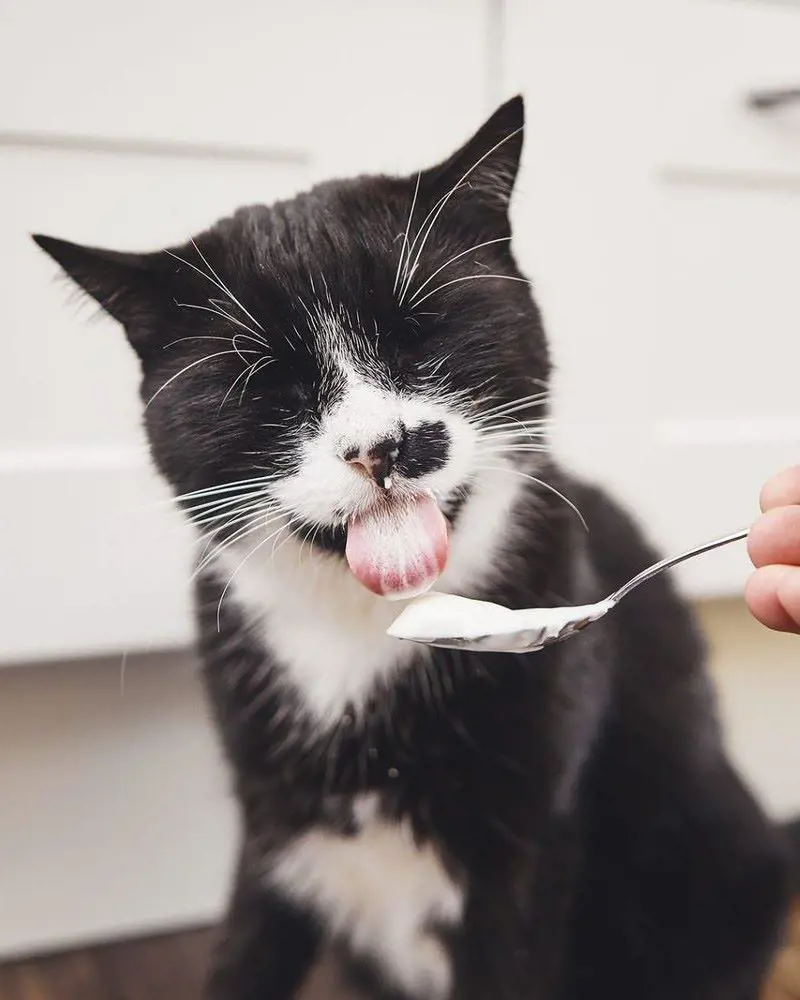
Cats can enjoy eating plain yogurt, but it is not a natural part of their diet. Felines may be attracted to the creamy texture and tangy taste of yogurt. Yogurt contains beneficial probiotics, which can help improve digestion and boost the immune system.
Not all cats can tolerate lactose, a sugar found in dairy products like yogurt. Many cats are lactose intolerant, which means they lack the enzymes needed to digest lactose properly. Feeding yogurt to a lactose-intolerant cat can lead to digestive upset, including diarrhea and stomach discomfort.
8. Pumpkin Puree
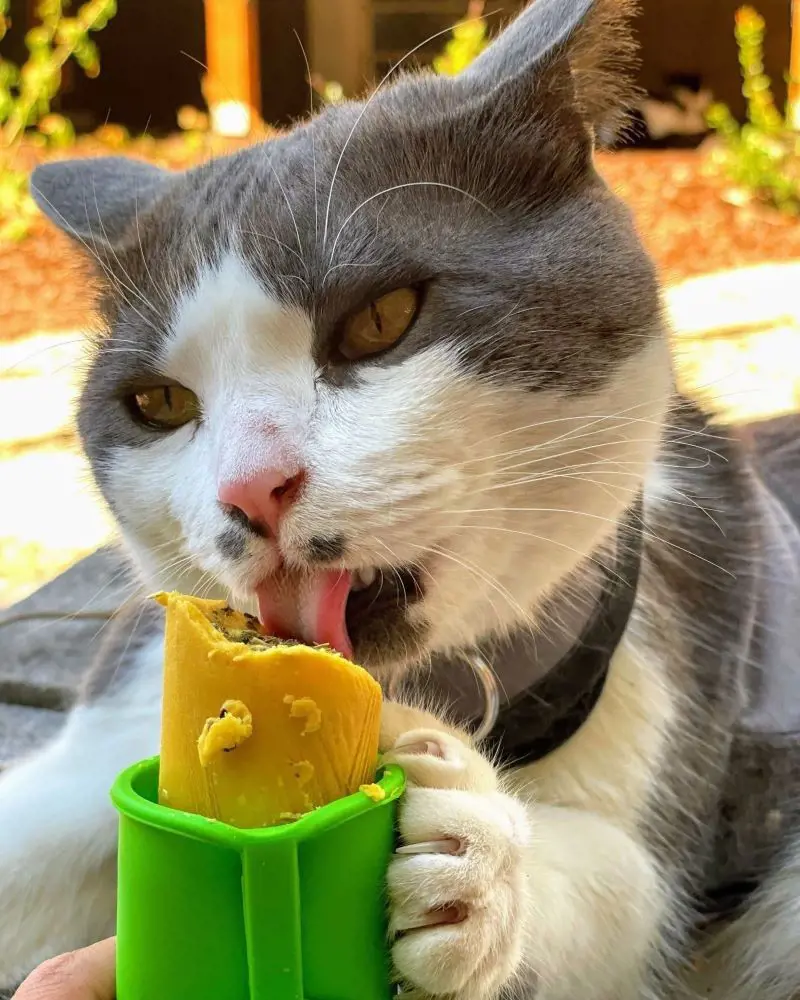
Pumpkin puree is a great treat for cats due to its numerous health benefits and palatability. The fruit is rich in fiber, which aids in digestion and helps regulate bowel movements. It can be particularly beneficial for cats suffering from constipation or diarrhea, as it can help normalize their digestive system.
Additionally, pumpkin puree is low in calories and fat, making it a suitable treat for overweight or obese cats. It can be used as a substitute for higher-calorie treats, helping to manage their weight while still providing a satisfying snack.
9. Cooked Carrots
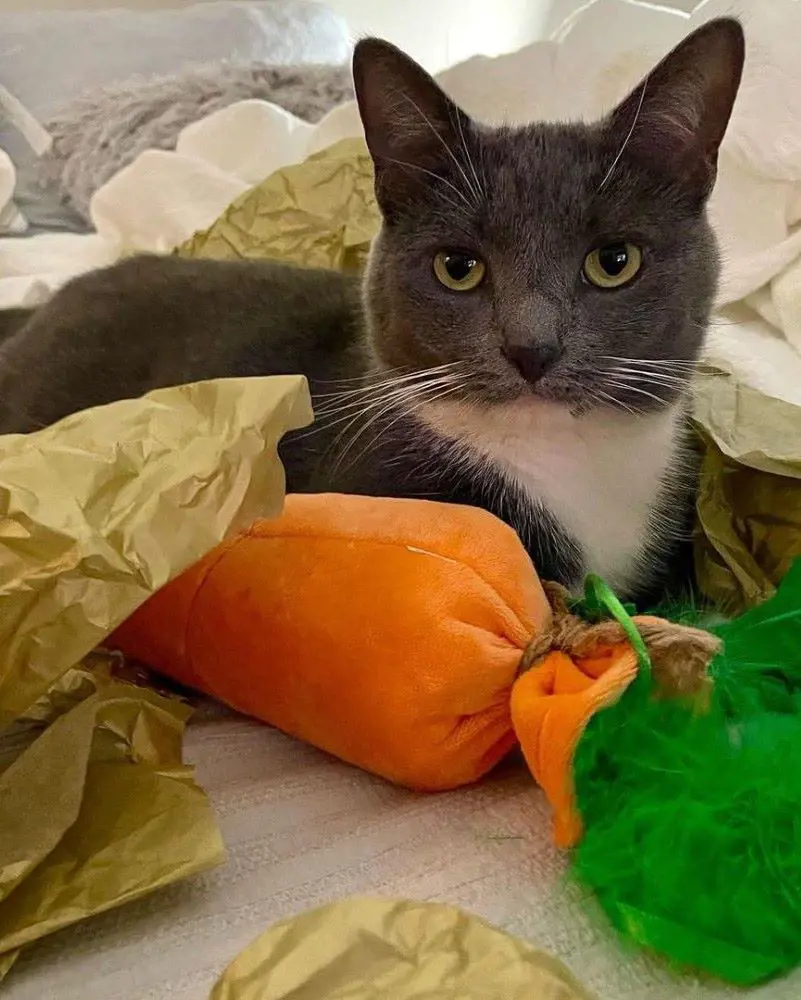
Carrots can be a healthy addition to a cat's treat in moderation. They are low in calories and high in fiber, making them a good choice for cats struggling with weight issues or constipation. Carrots are also rich in vitamins A, C, and K, which can support overall immune health and promote healthy eyesight.
However, it is crucial to note that cats are obligate carnivores, meaning their nutritional needs are primarily met through meat-based diets. While carrots can provide some nutritional benefits, they should not replace the essential nutrients found in high-quality cat food.
10. Cooked Peas
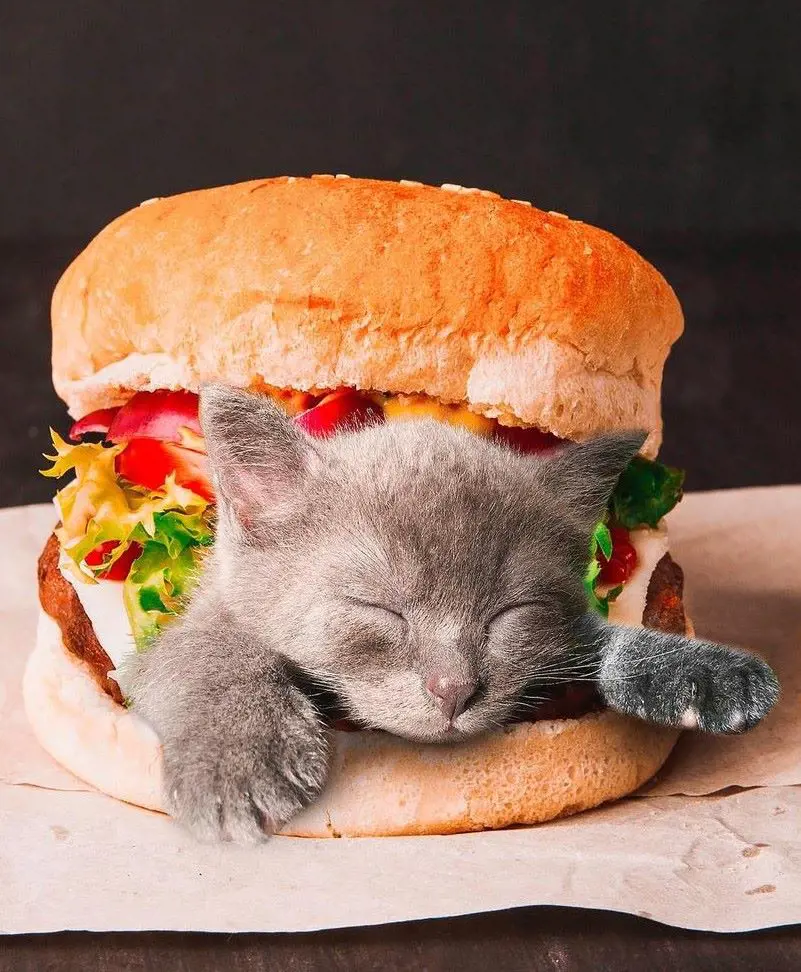
Peas are not a major part of a cat's diet but are considered more of a treat/snack. Cats are obligate carnivores, which means they have evolved to primarily eat meat. Their bodies are designed to efficiently digest and absorb nutrients from animal-based protein sources. They may consume small amounts of plant matter in the wild, it is usually incidental and does not provide significant nutritional value.
Peas, like other vegetables, are high in carbohydrates and fiber, which are not essential for cats and can even be detrimental to their health. Cats have a limited ability to break down and utilize carbohydrates, and a diet high in carbohydrates can lead to obesity, diabetes, and other health issues.
11. Cooked Green Beans
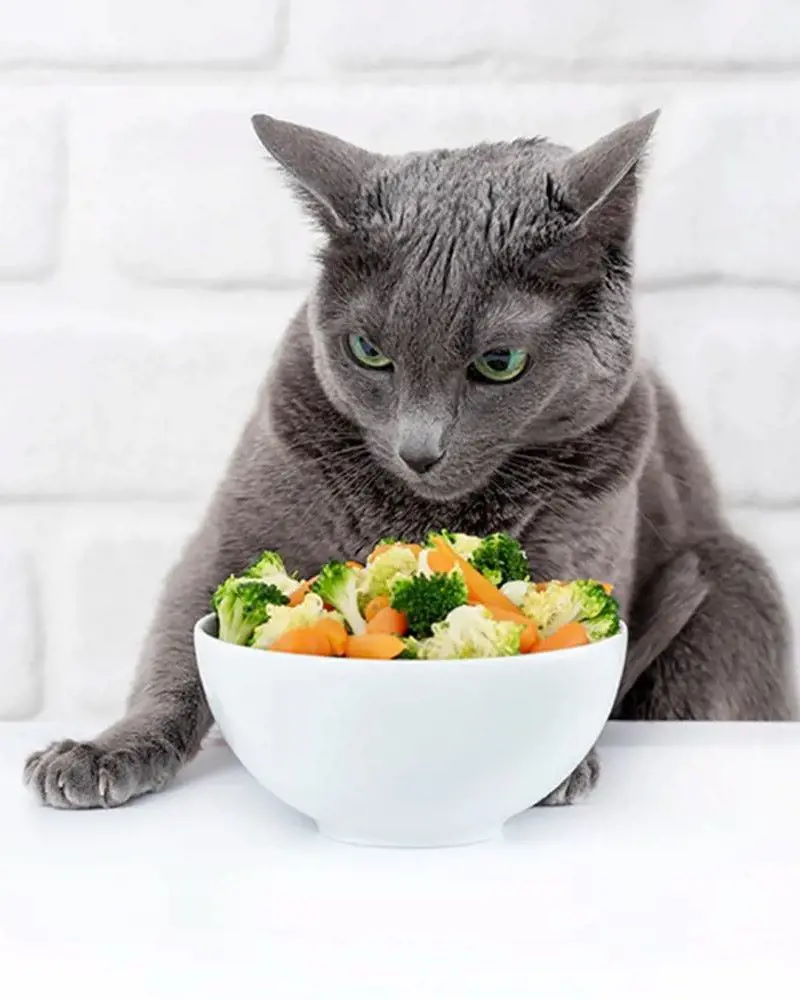
Cooked green beans can be beneficial to a cat's health when offered in moderation. Green beans are low in calories and high in fiber, making them a healthy addition to a cat's diet. The fiber content aids in digestion and can help prevent constipation.
Additionally, green beans provide essential nutrients like vitamins A, C, and K, as well as minerals such as potassium and manganese. On the other hand, cats are obligate carnivores; their diet should primarily consist of animal-based protein. While green beans can be a healthy addition, they should not replace a balanced and species-appropriate diet for cats.
12. Cooked Sweet Potatoes
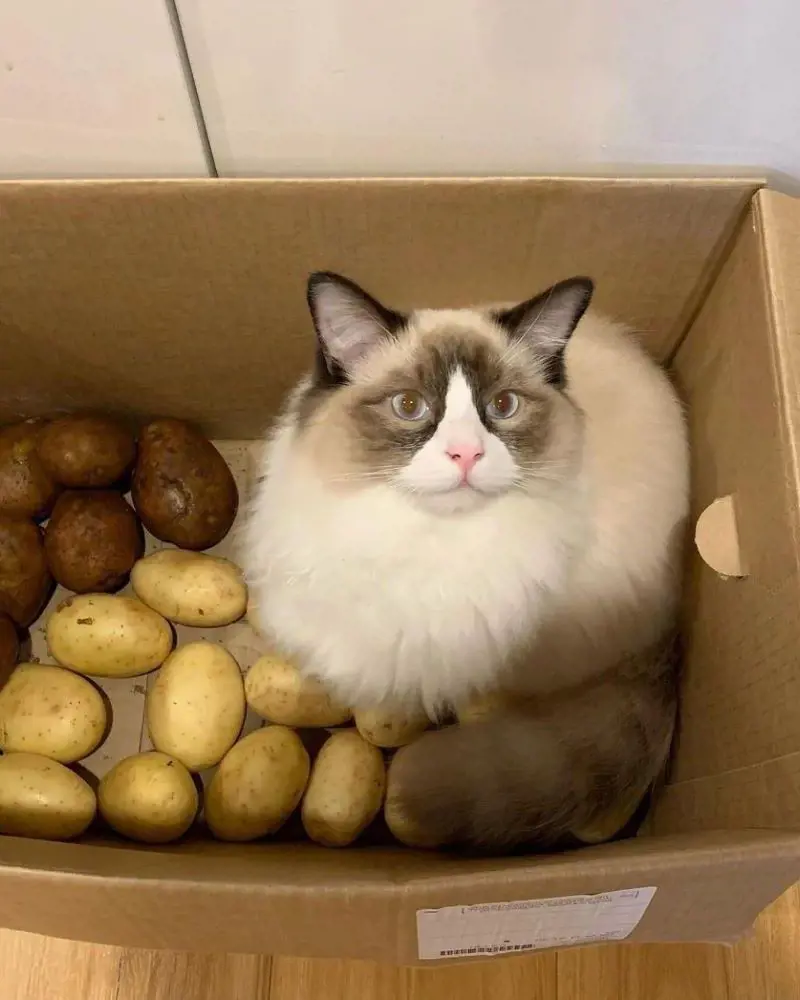
Sweet potatoes are not toxic to cats, but they lack the essential nutrients that cats require for optimal health. Cats do not have a taste receptor for sweetness, so they may not have the same appreciation for sweet flavors as humans do. However, sweet potatoes can be served as a treat occasionally for a change in taste.
It is generally recommended to stick to a balanced and specially formulated cat food that meets all of their nutritional needs. If you are considering introducing any new food to your cat's diet, it is always best to consult with a veterinarian to ensure it is safe and appropriate.
13. Blueberries
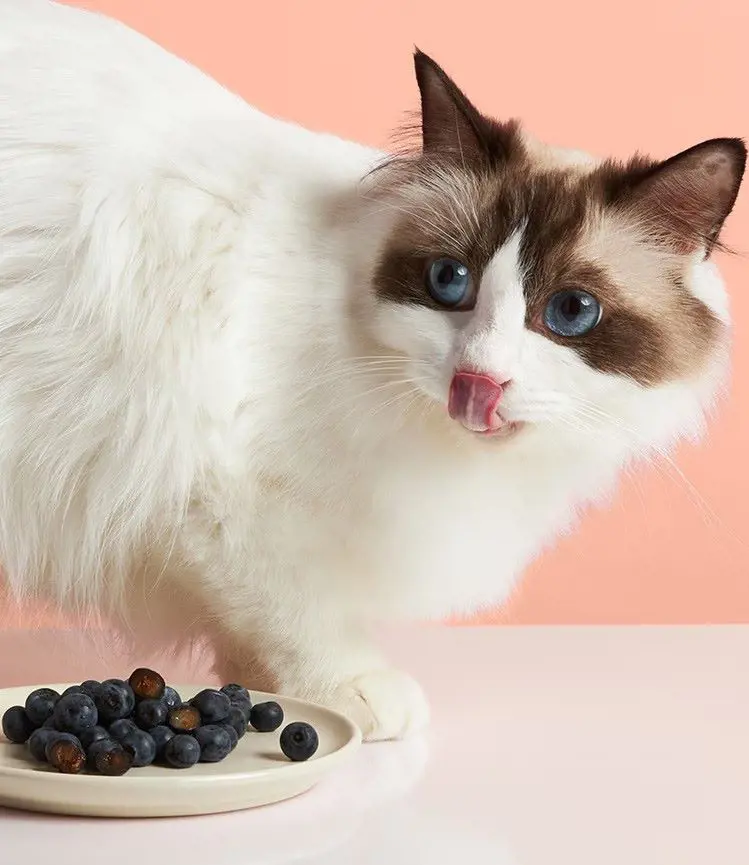
Blueberries are safe for cats to eat in limited quantities. They are a great source of antioxidants, vitamins, and fiber. However, it is important to remember that blueberries should only be given as an occasional treat.
When serving blueberries to cats, it is essential to wash them thoroughly and remove any stems or leaves. It is also recommended to cut the blueberries into smaller, bite-sized pieces to prevent choking hazards. Some cats may enjoy eating blueberries directly, while others may prefer them mashed or mixed into their food.
14. Watermelon
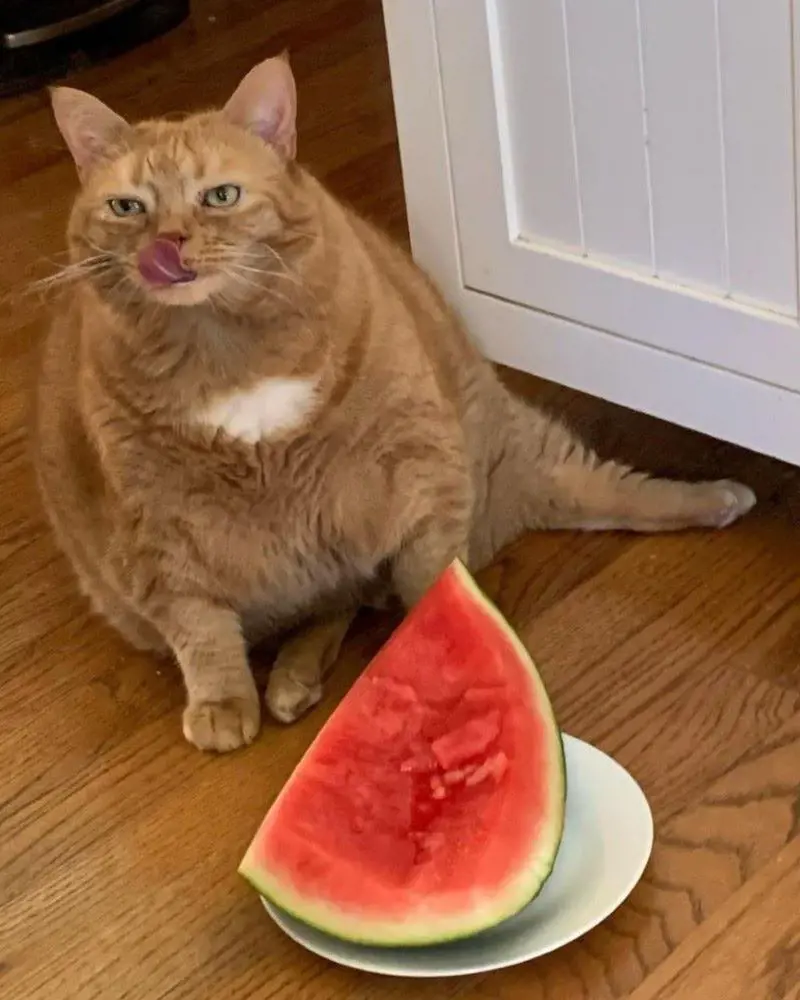
Feeding watermelons to cats as treats is generally safe, but it should not be done excessively. Watermelon is a hydrating fruit that contains essential vitamins and minerals. However, watermelon should never replace their regular cat food or be given in large quantities.
Before offering watermelon to your cat, ensure it is seedless and cut it into small, bite-sized pieces. Cats may not be attracted to the taste of watermelon, so it is essential to introduce it gradually. Additionally, some cats may have allergies or sensitivities to certain fruits, so it's always a good idea to monitor their reaction and consult a veterinarian if any adverse symptoms occur.
15. Cantaloupe
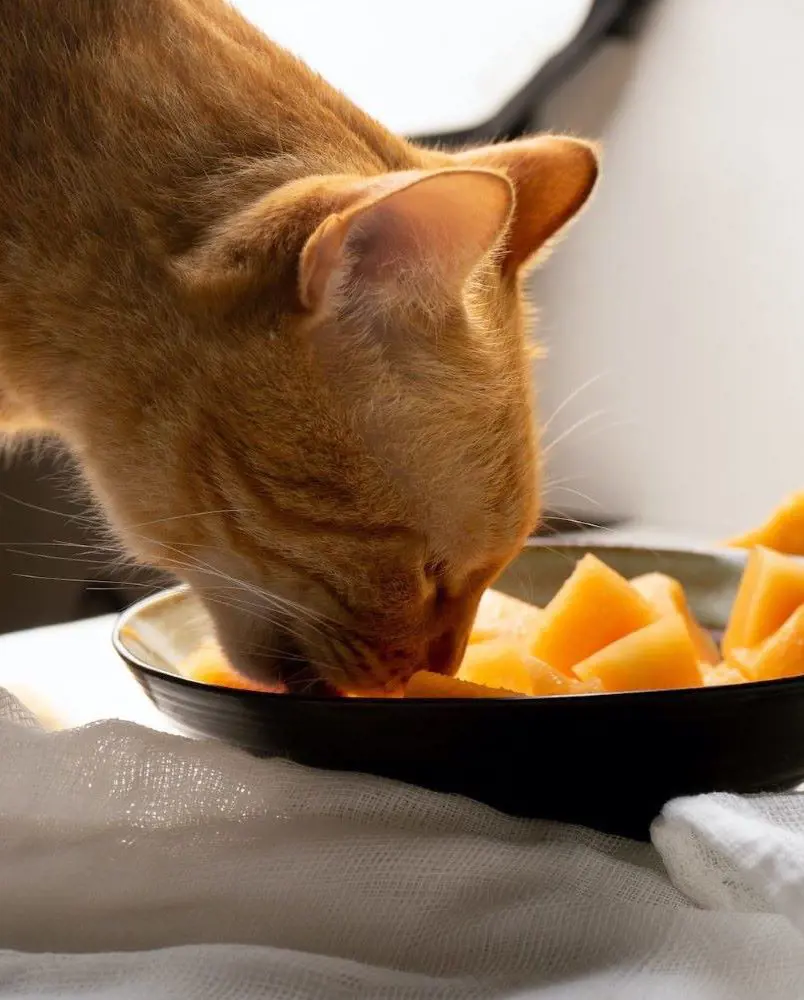
Despite being notorious meat-eaters, many cats also show interest in eating fruits like cantaloupe. There are a few possible reasons for this behavior. First, cats are curious animals and may be attracted to the smell, texture, or color of cantaloupes.
Additionally, cantaloupe contains natural sugars, which can be appealing to cats. Cats have taste receptors for sweet flavors, although they are not as developed as those for meat. It's also possible that cats may be drawn to cantaloupe due to its high water content, which can help them stay hydrated.
16. Cooked Oatmeal
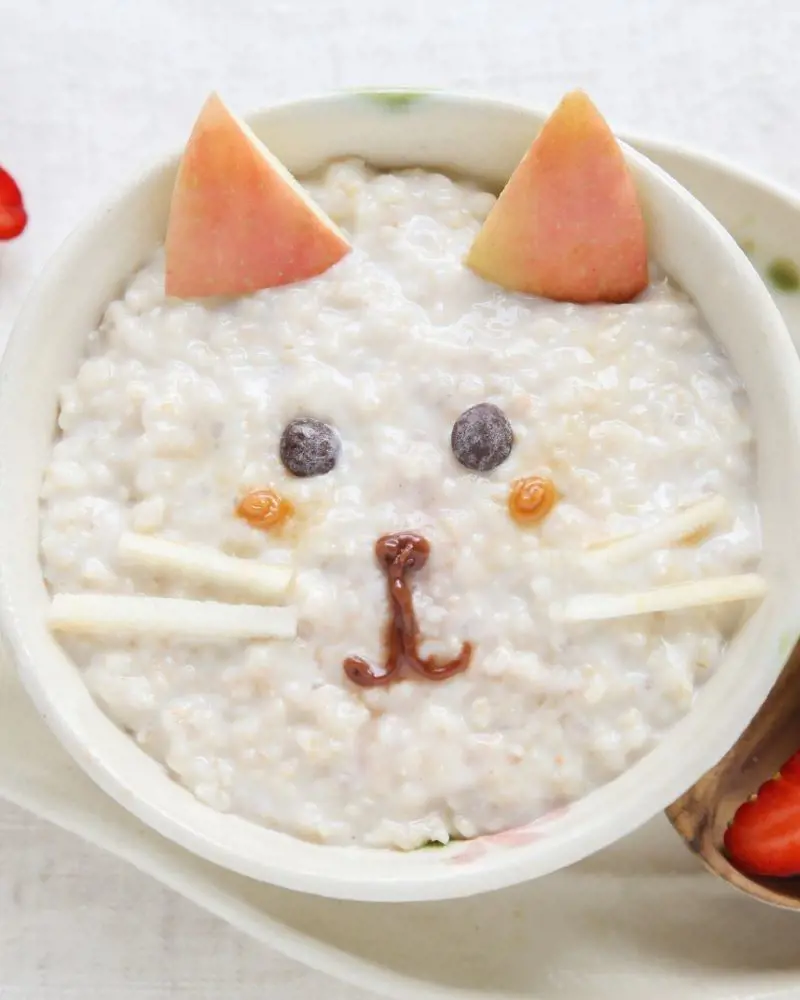
While cooked oatmeal is generally safe for cats to eat in small amounts, it should not be a regular part of their diet. Oatmeal does not provide the necessary nutrients that cats require for optimal health. Additionally, some cats may have difficulty digesting grains, leading to digestive upset or allergies.
If you want to treat your cat with oatmeal occasionally, ensure that it is plain, without any added sugar or milk. Remember to offer it in small portions and monitor your cat for any adverse reactions.
17. Cooked Pasta
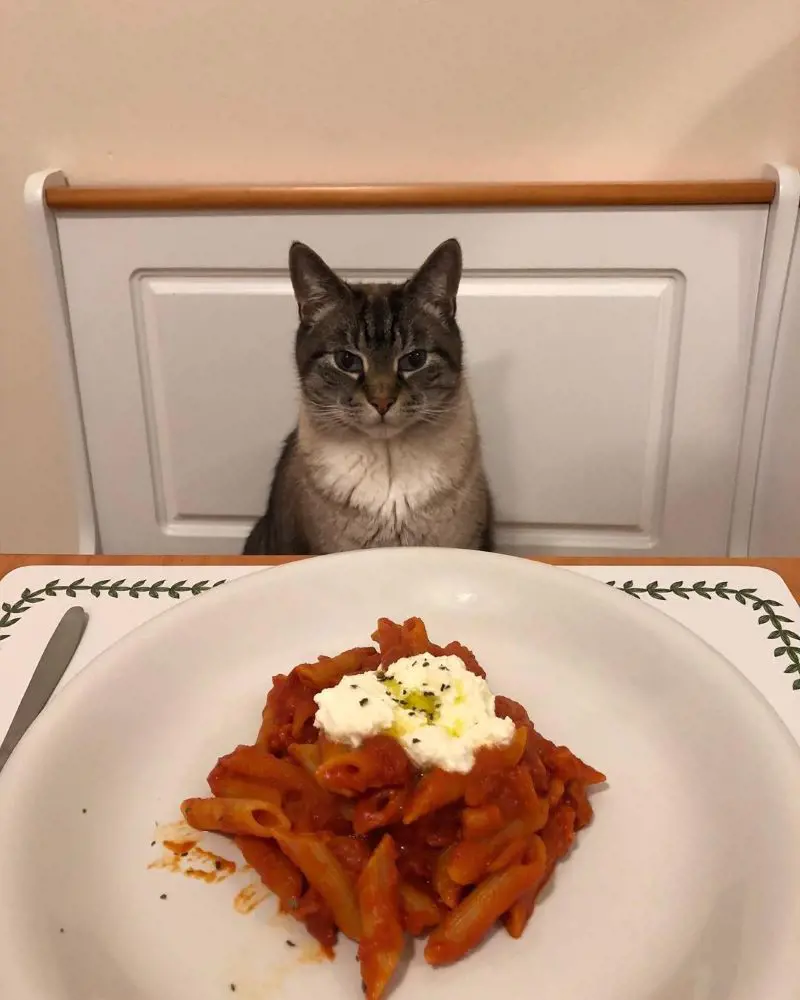
Pasta can be an excellent choice for treating your pet cat. Cook the pasta without any salt, seasonings, or sauces, as these can be harmful to cats. Once cooked, ensure that the pasta has cooled down completely before serving, as hot food can be dangerous for cats.
Cut the pasta into small, bite-sized pieces to make it easier for them to eat. It is important to remember that pasta should only be given in small quantities and should never replace regular balanced cat food. Always consult with a veterinarian before introducing any new food to your cat's diet.
18. Cooked Rice
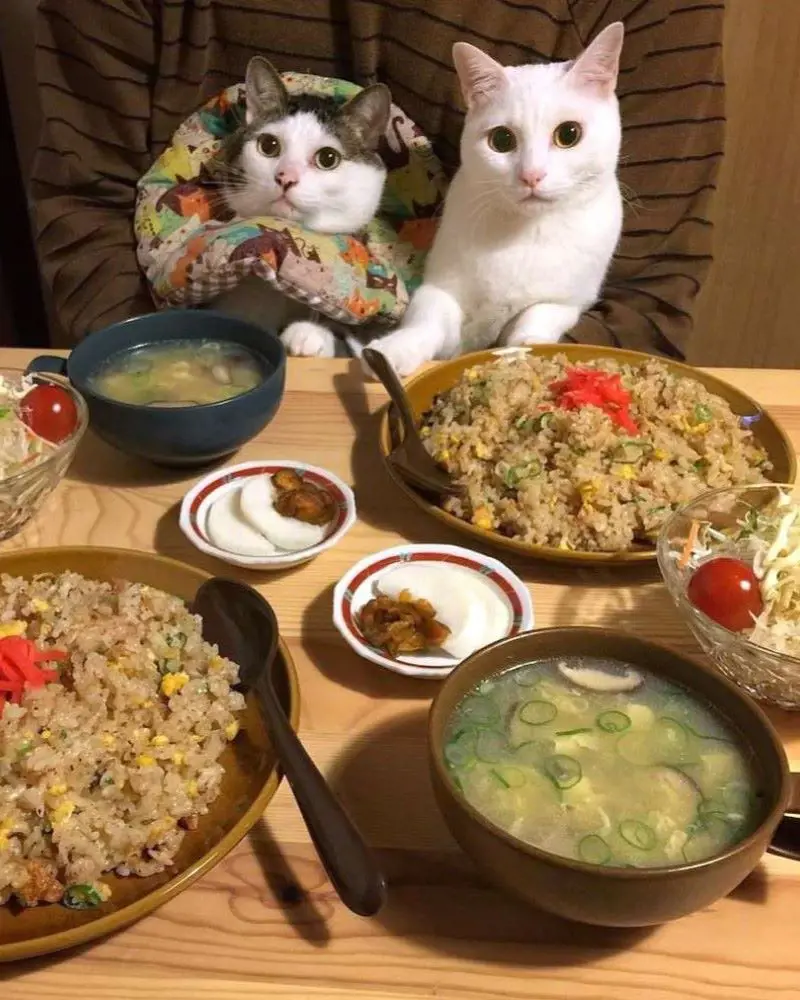
Cooked rice can be a healthy addition to a cat's diet if given as part of a balanced meal. It can provide some nutritional benefits such as carbohydrates and fiber. However, rice alone does not provide all the essential nutrients that cats require, such as taurine and certain vitamins.
Additionally, some cats may have difficulty digesting grains, including rice, which could lead to gastrointestinal issues. If you decide to feed your cat rice, it is crucial to ensure that it is thoroughly cooked and plain, without any added seasonings or oils.
19. Cooked Beef
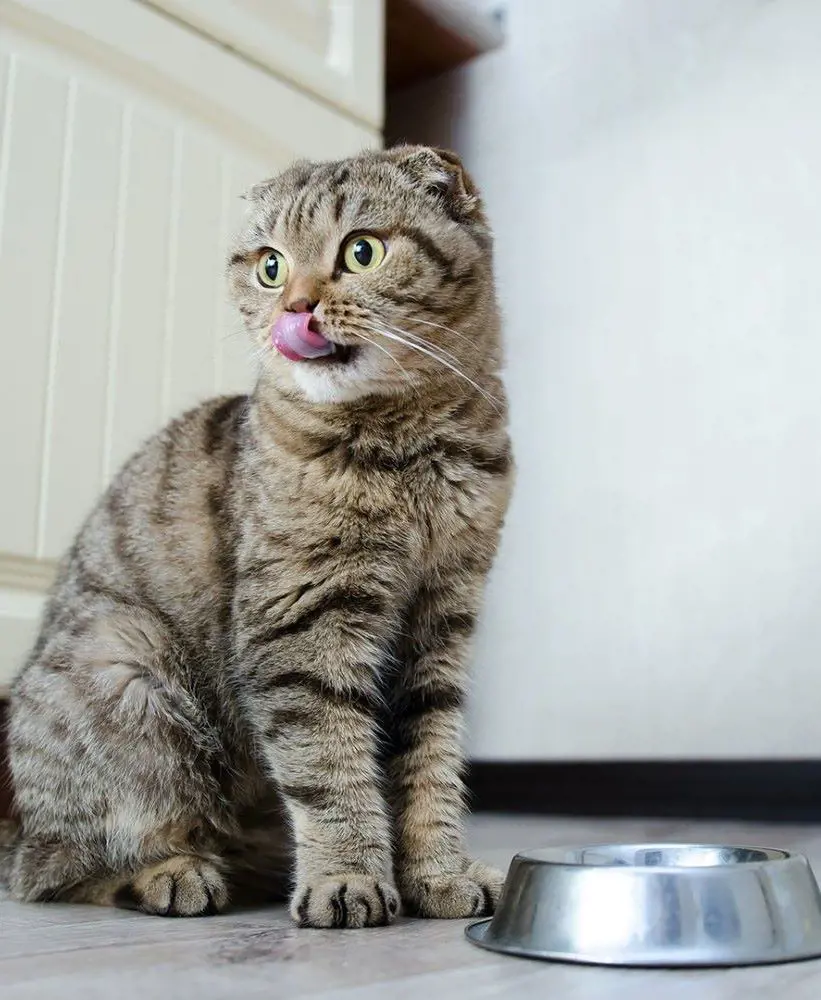
Cooked beef can be offered to cats as an occasional treat or supplement to their regular diet. Beef can be a good source of protein and certain vitamins and minerals for cats. However, ensure that the beef is cooked thoroughly, without any added seasonings, spices, or oils.
Moreover, fatty cuts of beef should be avoided as they can lead to digestive issues. Moderation is key when offering cooked beef to cats, and it's always recommended to consult with a veterinarian about the appropriate amount and frequency of treats for your specific cat.
20. Cooked Pork
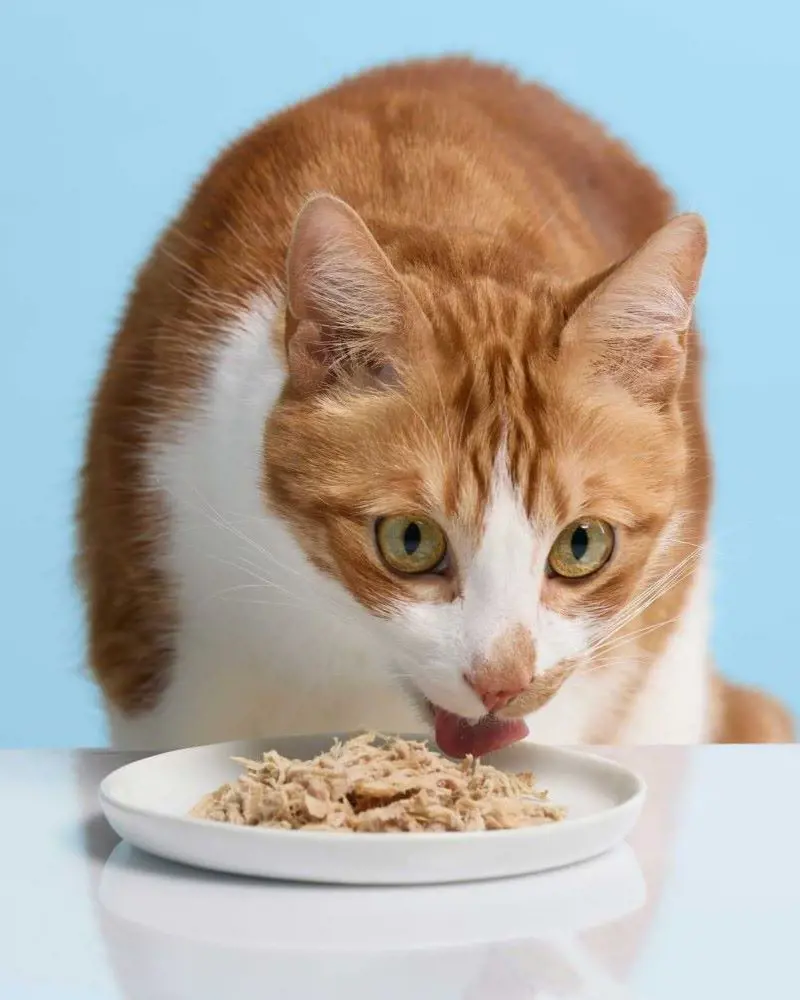
While pork can be included in a cat's diet occasionally, it should be prepared and served in a specific way to ensure it is safe and nutritious for them. The best way to serve pork to cats is by cooking it thoroughly and removing all bones, fat, and seasoning.
It is crucial to avoid using any spices, onions, garlic, or additives that are toxic to felines. Additionally, the pork should be cut into small, easily digestible pieces to prevent choking hazards. Cats have specific dietary requirements, so pork should not be the main component of their meals.
Recent posts
Cat Foods
Is It Safe For Cats To Eat Dog Foods?
Feeding pets is a significant aspect of their care, and understanding the nutritional needs of different species is crucial. Many pet owners, especially those with both cats and dogs, might wonder if their feline friends can safely eat dog food. Whil...
Plants That Are Poisonous For Cats
Meet the deceptive cast of beautiful and alluring common plants that pose a perilous threat to our feline friends. Among the plants poisonous for cats stands the alluring yet treacherous lily, celebrated for its enchanting blossoms that belie a toxic...
15 Homemade Cat Food Recipes
Preparing homemade cat food is not just a culinary adventure but also a loving gesture toward your feline companion's well-being. Picture a medley of lean meats, nutrient-packed vegetables and essential supplements all coming together to form a...
Cat Feeding Guide: Nutritional Needs, Portions, and Tips
Feeding your cat the right amount of food is crucial for maintaining its health and well-being. Overfeeding can lead to obesity, while underfeeding can cause nutritional deficiencies. This guide will help you understand how much you should feed your ...
The Raw Truth: Should Your Cat Eat a Raw Food Diet?
Feeding a cat a raw diet has become popular among pet owners looking to provide a more natural and potentially healthier option for their feline companions. However, this approach is not without its controversies and complexities. This article aims t...
10 Best Wet Food For Kittens
Wet food for kittens has a high moisture content that helps to keep young felines well-hydrated and supports their muscle growth. These types of food tend to be more palatable for picky eaters which makes them an excellent choice for cats with discer...
